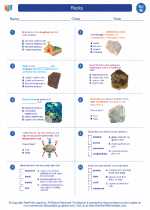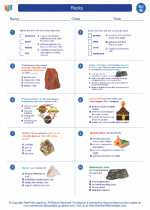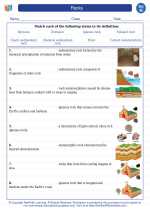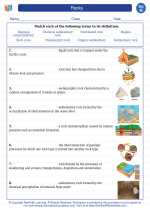Bacteria
Bacteria are single-celled microorganisms that can be found almost everywhere on Earth. They are incredibly diverse and can have various shapes, sizes, and functions. Some bacteria are beneficial, while others can cause diseases.
Characteristics of Bacteria
- Prokaryotic: Bacteria are prokaryotic, which means they do not have a nucleus or other membrane-bound organelles.
- Shapes: Bacteria can be spherical (cocci), rod-shaped (bacilli), or spiral (spirilla).
- Reproduction: Bacteria reproduce through binary fission, where one cell divides into two identical cells.
- Mobility: Some bacteria have flagella or pili that help them move.
Role of Bacteria
Bacteria play essential roles in various ecological processes, such as nutrient cycling, decomposition, and nitrogen fixation. They are also used in food production, medicine, and biotechnology.
Bacterial Diseases
While some bacteria are beneficial, others can cause diseases in humans, animals, and plants. Examples of bacterial diseases include tuberculosis, cholera, and strep throat.
Studying Bacteria
To study bacteria, scientists use various techniques such as microscopy, culturing, and molecular biology methods. Understanding bacteria is crucial for fields such as microbiology, medicine, and environmental science.
Quiz Questions
- What is the reproductive method of bacteria called?
- Give an example of a beneficial role of bacteria.
- Name one bacterial disease and its symptoms.
[Bacteria] Related Worksheets and Study Guides:
.◂Science Worksheets and Study Guides Eighth Grade. Rocks

 Worksheet/Answer key
Worksheet/Answer key
 Worksheet/Answer key
Worksheet/Answer key
 Vocabulary/Answer key
Vocabulary/Answer key
 Vocabulary/Answer key
Vocabulary/Answer key
 Vocabulary/Answer key
Vocabulary/Answer key
